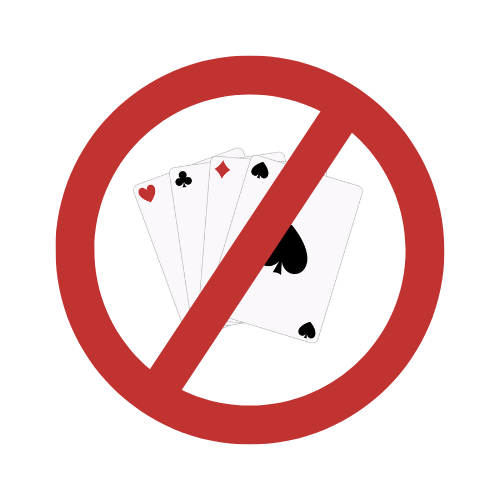Understanding Gambling Addiction
What is gambling addiction?
Gambling addiction, also known as gambling disorder or compulsive gambling, is a serious mental health issue that affects many individuals in the UK. This condition is characterised by an uncontrollable urge to gamble despite the negative consequences it brings to one’s life. This blog post explores the nature of gambling addiction, its causes, impacts, treatment options, and includes a personal account from someone undergoing treatment.
The Nature of Gambling Addiction
Gambling addiction is a behavioural addiction that shares similarities with substance use disorders. It involves repeated problematic gambling behaviour that leads to significant distress or impairment. Key signs of gambling addiction include:
- Preoccupation with Gambling: Constantly thinking about gambling and planning future gambling activities.
- Increasing Bets: Needing to bet larger amounts to achieve the desired excitement.
- Chasing Losses: Continuing to gamble to recover lost money.
- Failed Attempts to Stop: Repeated unsuccessful efforts to cut back or stop gambling.
- Lying: Concealing the extent of gambling activities from family and friends.
- Jeopardised Relationships: Neglecting or damaging important relationships due to gambling.
Causes and Risk Factors
The development of gambling addiction is influenced by a combination of genetic, psychological, and environmental factors. Key risk factors include:
- Genetics: A family history of gambling or other addictions can increase susceptibility.
- Mental Health Disorders: Conditions such as depression, anxiety, and substance abuse often coexist with gambling addiction.
- Personality Traits: Impulsivity, high sensation-seeking, and a tendency towards compulsive behaviour are linked to higher risk.
- Environmental Influences: Exposure to gambling environments, peer pressure, and the availability of gambling opportunities can contribute to addiction.
- Life Stressors: Financial difficulties, relationship problems, and other significant stressors may lead individuals to gamble as a form of escape.
“Gambling: The sure way of getting nothing for something.”
– Wilson Mizner
The Impact of Gambling Addiction
Gambling addiction has wide-reaching consequences that affect the individual, their family, and society as a whole.
Financial Consequences
The most immediate impact of gambling addiction is often financial. Individuals may deplete their savings, accumulate debt, or even engage in illegal activities to fund their gambling. This can lead to severe financial instability and hardship.
Mental Health
Gambling addiction is closely linked with various mental health issues, including depression, anxiety, and suicidal thoughts. The stress and guilt associated with gambling losses can exacerbate these conditions, creating a vicious cycle.
Relationships
The strain of gambling addiction often leads to conflicts with family and friends. Relationships can be damaged or destroyed due to the secrecy, lying, and financial problems associated with compulsive gambling.
Work and Productivity
Gambling addiction can negatively impact job performance, leading to absenteeism, decreased productivity, and even job loss. The preoccupation with gambling can distract individuals from their work responsibilities and goals.
Treatment and Recovery
Recovering from gambling addiction is challenging but achievable with the right support and treatment. Effective treatment options include:
Counselling and Therapy
Therapeutic interventions are crucial for addressing the underlying causes of gambling addiction and developing healthier coping mechanisms. Key therapies include:
- Cognitive Behavioural Therapy (CBT): Helps individuals identify and change distorted thinking patterns and behaviours related to gambling.
- Motivational Interviewing (MI): Encourages individuals to explore their motivations for change and develop a commitment to recovery.
- Group Therapy: Provides a supportive environment where individuals can share experiences and strategies for overcoming gambling addiction.
Medication
While no medications are specifically approved for gambling addiction, some can help manage symptoms of co-occurring mental health disorders, such as depression and anxiety, which may contribute to gambling behaviour.
Support Groups
Support groups like Gamblers Anonymous (GA) offer peer support and a sense of community for individuals in recovery. These groups provide a platform for sharing experiences and receiving encouragement from others who understand the challenges of gambling addiction. More information can be found on the Gamblers Anonymous UK website.

David’s Story
My Personal Journey to Recovery
David, a 40-year-old from London, shares his experience with gambling addiction and his path to recovery:
“My gambling started innocently enough with the occasional flutter on football matches. But soon, I found myself betting more frequently and for larger amounts. It wasn’t long before I was gambling daily, chasing my losses, and lying to my family about my whereabouts and finances.
The turning point came when I lost a significant amount of money meant for our mortgage payment. My wife discovered the truth, and it nearly destroyed our marriage. Desperate for help, I joined Gamblers Anonymous and started therapy.
Through CBT and the support of my GA group, I began to understand the triggers for my gambling and developed strategies to manage them. It’s been eighteen months since I placed a bet. The journey hasn’t been easy, but with the support of my family and peers, I’m rebuilding my life and relationships.”
Resources and Support in the UK
For those struggling with gambling addiction, numerous resources are available in the UK:
- NHS Gambling Addiction Services: Offers assessment, treatment, and support for gambling addiction (NHS Gambling Addiction Services).
- GamCare: Provides free information, advice, and support for anyone affected by problem gambling (GamCare).
- Gamblers Anonymous UK: Offers meetings and resources for individuals in recovery (Gamblers Anonymous UK).
- BeGambleAware: Provides support and resources to help people make informed decisions about their gambling (BeGambleAware).
Conclusion
Gambling addiction is a serious and complex condition that affects many individuals and their families in the UK. Understanding the nature of gambling addiction, its causes, and the available treatment options is essential for addressing this issue. With the right support and resources, recovery is possible, and individuals can regain control of their lives. If you or someone you know is struggling with gambling addiction, don’t hesitate to seek help and start the journey towards recovery.
